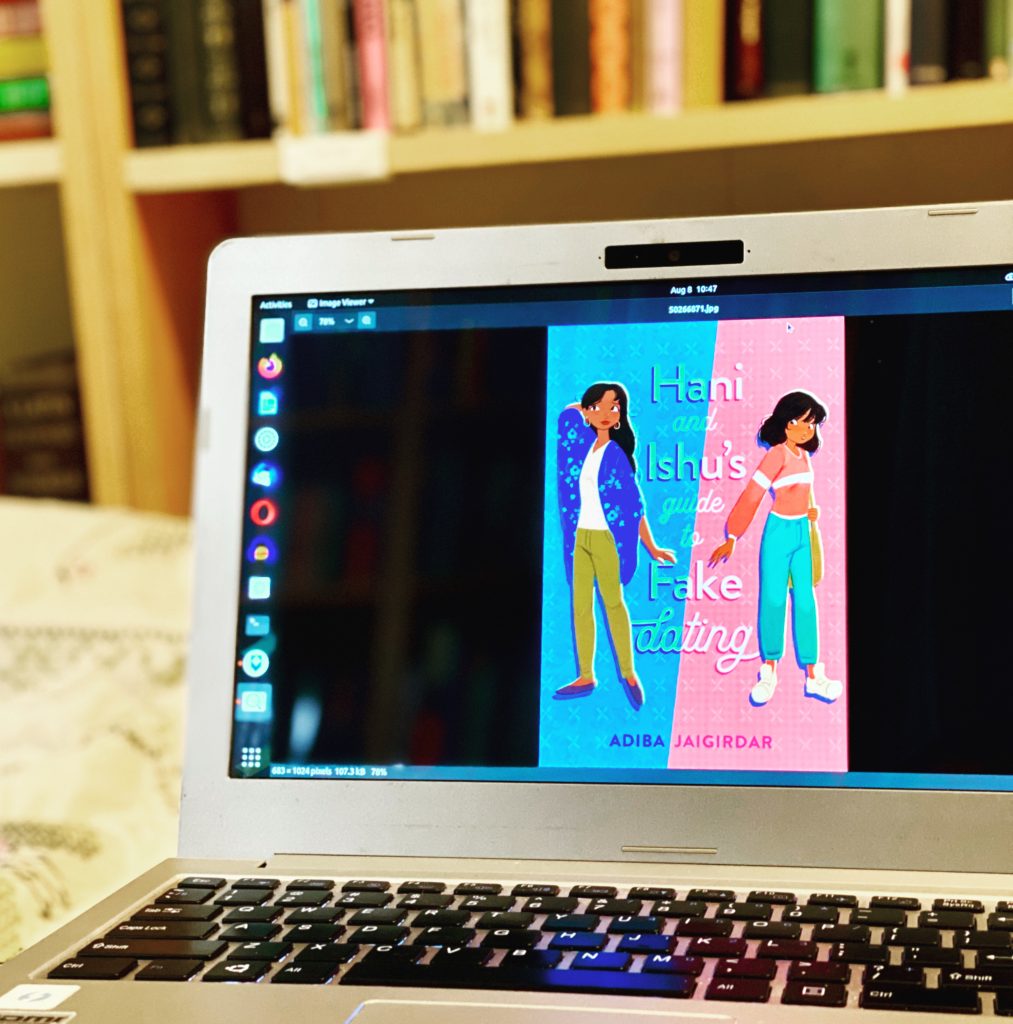
YA contemporary. Hani and Ishu are Bengali-Irish teens living in Dublin. They are among the only desi girls in their school, are very different people, and are not friends. But when Hani is trying to figure out how to stop her white Irish friends from their quite aggressive refusal to accept her identification as bi, she blurts out that she is in fact dating Ishu. Then she sees no alternative but to actually suggest to Ishu that they pretend to date, and after intense initial reluctance, Ishu agrees to the scheme for her own reasons – Hani is very popular and Ishu is not, and Ishu feels this would help her become Head Girl, to strengthen her already-very-strong university applications. As with pretty much any fake dating story I have ever read or heard about, the premise is a bit ridiculous, but given that it is inherent to this trope and that I like what the author did with it, that didn’t unduly bother me. Though the book is organized around the fake relationship, and of course the literarily inevitable real feelings that thereby emerge, it is really a book about figuring out how to be who you are in the face of other people who want you to be something else. Very cleverly, for neither girl is this about their queerness or about coming out – neither are at all conflicted about their sexualities, and Hani has been out to her (very accepting) parents for awhile while Ishu is not out to hers by the end of the book and does not seem unduly concerned about it. Rather, it is about the dynamics within Ishu’s family, including the very heavy academic and life-path expectations imposed by her parents and what that has done to her relationship with her sister, and it is about the incredibly toxic way that Hani’s white friends treat her, not only with their bi erasure but also the ways in which they have pushed her to largely hide anything distinctively Muslim or Bengali from her self when she is around them. (That last part – the toxic white girl ‘friendship’ stuff – I found particularly hard to read.) There were other clever aspects to the book, including tweaking the expectations of white, non-Muslim readers, and doing a little unobtrusive educating about Islam. (Hani is Muslim but Ishu is not.) But mostly, I just liked the story. YA contemporary that is focused on a relationship is obviously a particular taste, so this is not for everyone, but I quite enjoyed it.
(A side note: I am finding that one consequence of beginning in earnest to consume a subset of books in audio format, as I have done in the last few months, is changing what I read, including for some reason increasing the proportion of YA. This is partly because until recently I had been accessing audiobooks only through my library, which means the selection is relatively limited. But I also am finding it a bit of a challenge to choose books that I want to read/listen to, but that I can be sure in advance I won’t care about owning in hardcopy – and, yes, I don’t really have good reasons for owning any book that is not work-related nonfiction, but I feel the pull to do so nonetheless. The increased YA consumption is related to that. I don’t mind, exactly, but I recently branched out into using a commercial audiobook service as well, which hopefully will be less constricting. We shall see.)
Originally posted by Scott on Goodreads.